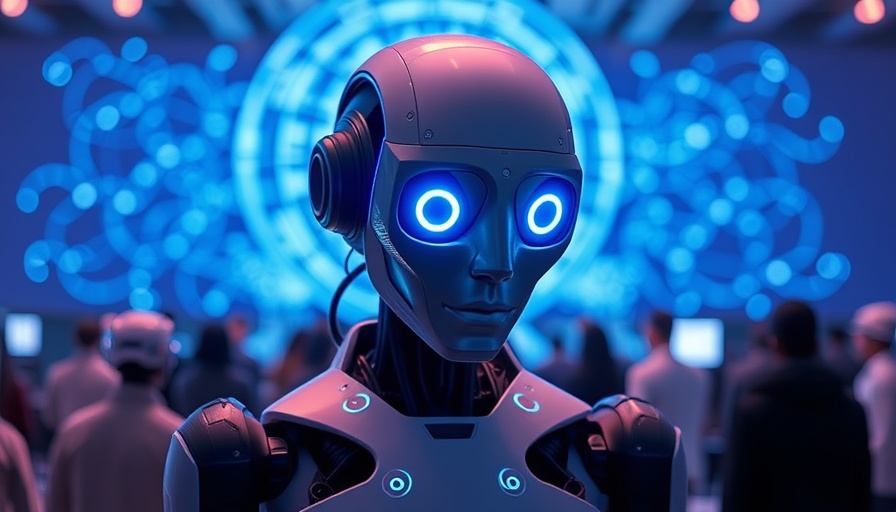
OpenAI's Ambitious Plans to Secure Record Valuation
The race for supremacy in artificial intelligence has taken an exhilarating turn, with OpenAI positioned to become the world's most valuable private company. In talks to sell $6 billion worth of shares, OpenAI aims to elevate its market valuation to an unprecedented $500 billion. This valuation would surpass that of SpaceX, currently the reigning champion at $350 billion.
How Did OpenAI Reach This Jubilation?
OpenAI has seen an extraordinary surge in growth, attributed primarily to significant investments from tech giants such as Microsoft and SoftBank. As of March, the company had attracted at least $40 billion in funding, which catalyzed its earlier valuation of $300 billion. Just last October, it was valued at only $157 billion. Such rapid growth speaks volumes about the current fervor and expectations surrounding AI technologies.
The Competitive Landscape of AI Development
OpenAI operates in a fiercely competitive ecosystem, vying against stalwarts like Meta, Google, Amazon, and Microsoft. Collectively, these corporations have invested a staggering $155 billion in AI development this year alone. This arms race is not just about funding; it also involves talent acquisition and infrastructure development, with leading firms aggressively hiring engineers and establishing cutting-edge data centers.
What Are the Implications of a $500 Billion Valuation?
If successful, OpenAI's ascension to a $500 billion valuation would signify a monumental milestone not only for the company but for the entire tech industry. It would indicate strong investor confidence in AI's transformative potential and could inspire further innovations. However, such valuation should also raise questions regarding market sustainability.
Challenges Ahead: Recent Developments to Consider
Despite the excitement around OpenAI's rapid growth, the company also faces challenges. The recent launch of GPT-5 was met with a mixed reception. Users criticized the new model, stating it lacked the creativity and distinct personality that earlier versions, like ChatGPT, were lauded for. This feedback presents a reminder that even the industry leader must continuously evolve to meet user expectations.
CEO Sam Altman has articulated that OpenAI is venturing towards “artificial general intelligence”—an AI capable of surpassing human capabilities. Nevertheless, during the latest launch, he acknowledged that while GPT-5 performs exceptionally well, it hasn't yet reached a point of continuous learning, a crucial feature for future advancement.
The Regulatory Landscape: Navigating Scrutiny
As OpenAI progresses, it remains under the scrutiny of regulators who are increasingly concerned about AI’s potential to generate harmful content and manipulate users. The industry must balance innovation with ethical considerations, ensuring that AI enhancements contribute positively to society rather than exacerbating existing issues.
What Lies Ahead for OpenAI?
As discussions around its potential stock sale continue, the AI community will closely watch how OpenAI navigates these upcoming challenges and opportunities. With flurries of investment and competition, the narrative surrounding its valuation will not just shape OpenAI's future; it could redefine the entire tech landscape. This is a pivotal moment for AI advancements and corporate valuations—stay tuned to see how this unfolds.
 Add Row
Add Row  Add
Add 




Write A Comment